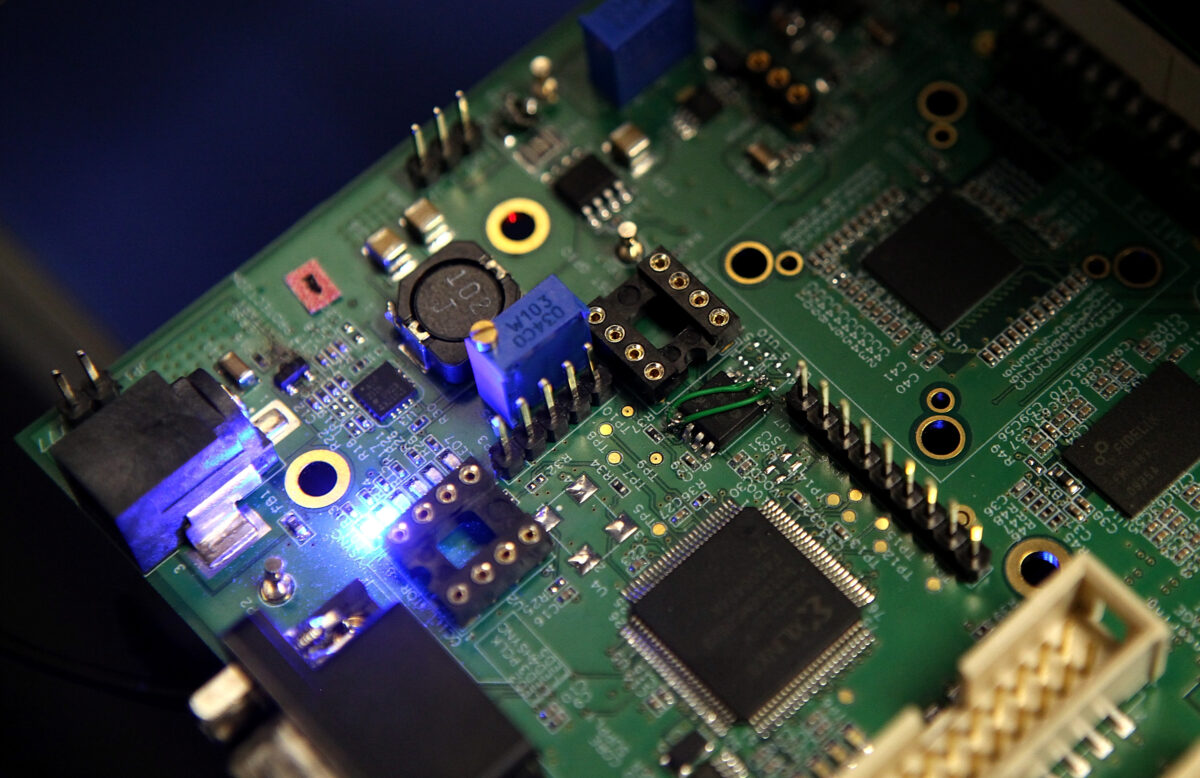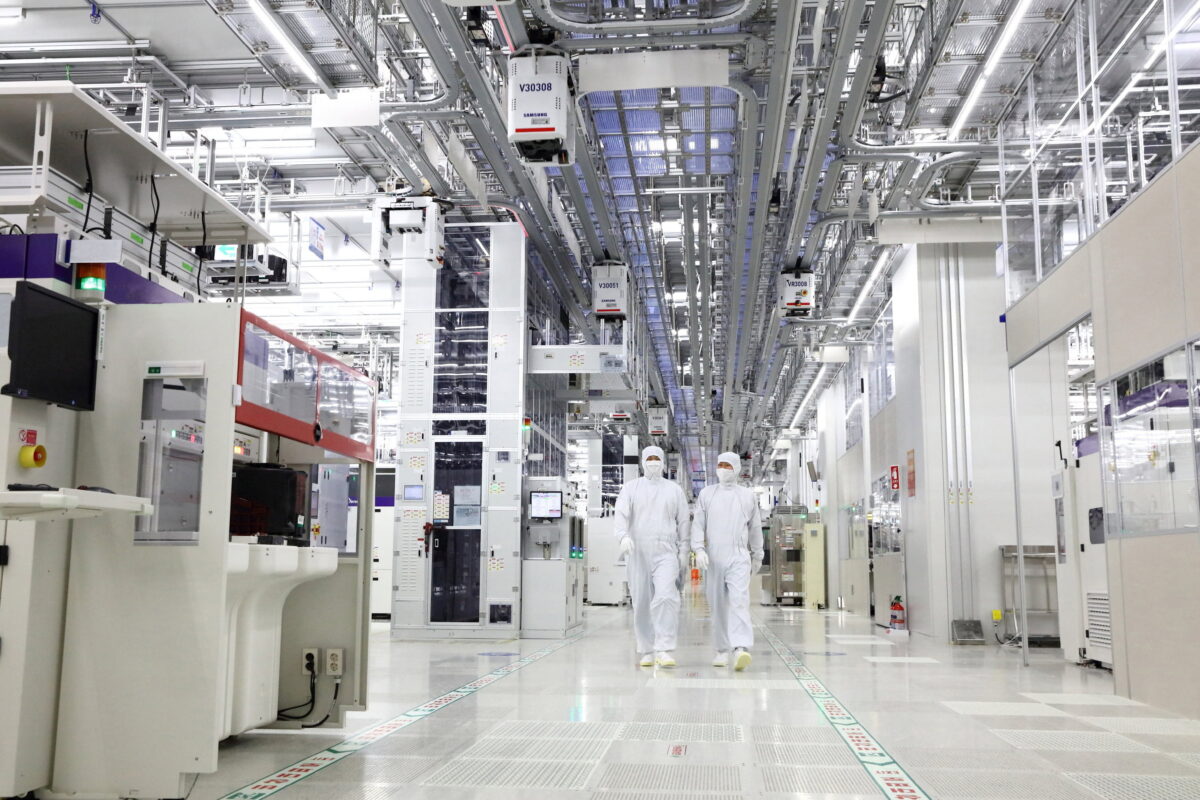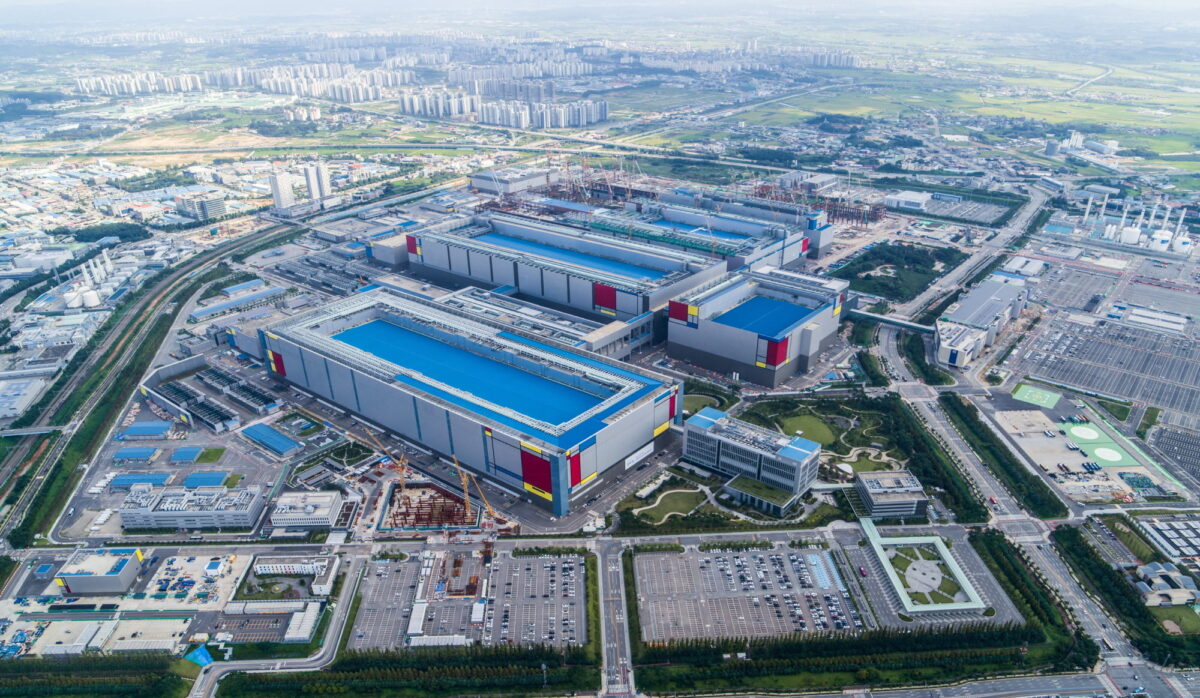South Korea Won’t Break Away From US-Led Tech Alliance Despite Mounting Pressure From China, Expert Says
News Analysis Following the U.S. chip ban on China last October, South Korea, a member of the U.S.-led Chip 4 Alliance, has not followed Washington’s strategy as explicitly as other alliance members, Japan and Taiwan, as it appears to have been trying to strike a balance between the United States and China. However, analysts believe South Korea will stay in the alliance despite its lukewarm participation. Since releasing U.S. semiconductor sanctions against China last October, Washington has urged its allies to jointly expand export controls on semiconductors and chipmaking equipment to China. In the past two months, Japan and the Netherlands, the world’s leading exporters of semiconductor equipment, have announced export controls on China. Taiwan said from the outset that it would comply with U.S. policies. Last March, the United States launched the Chip 4 Alliance to exclude China from the major semiconductor supply chain. The U.S.-led alliance aims to strengthen cooperation in the semiconductors industry between the United States and the East Asian powerhouses of Taiwan, South Korea, and Japan to build a secure supply chain that excludes China. Last October, Washington announced sweeping new export controls that will cut China off from specific semiconductor chips made with U.S. technologies, even if the chips were manufactured in the United States. Among the Chip 4 Alliance members, South Korea is the most uncertain about whether to follow Washington’s strategy because of pressure from China, its largest trading partner. While the chipmaking equipment powerhouses of Japan and the Netherlands were discussing how to follow up on the U.S. semiconductor sanctions on China, South Korea was negotiating with Washington on the survival of its chip factories in China. In late March, Samsung’s chairman Lee Jae-yong attended the China Development Forum in Beijing, sponsored by the Chinese State Council. According to Korea JoongAng Daily, the forum’s attendees include about 100 top executives from global companies, such as Apple CEO Tim Cook, Qualcomm CEO Cristiano Amon, Pfizer CEO Albert Bourla, and BMW Chairman Oliver Zipse. Lee did not make official comments during the event, the report said, as speculation suggests that the Samsung head is taking a cautious stance amid the intensifying U.S.-China rivalry. Semiconductors are seen on a circuit board that powers a Samsung video camera at the Samsung MOBILE-ization media and analyst event in San Jose, Calif., on March 23, 2011. (Justin Sullivan/Getty Images) Sweeping US Chip Sanctions on China Affect South Korea Fang Qi, a UK-based investment consultant, told The Epoch Times on April 6 that U.S. semiconductor sanctions on China will significantly impact the Korean economy in the short term because the country’s chip exports and production heavily depend on China. “Korean companies have invested a lot in China,” Fang said. “Samsung has 40 percent of its NAND flash memory produced in Xi’an and packaged in Suzhou. Meanwhile, SK Hynix has about half of its DRAM memory chips and 20 percent of its NAND flash memory chips made in Wuxi and Dalian, especially since SK Hynix took over Intel’s NAND flash memory plant in Xi’an in October 2020. “Therefore, it’s difficult for Korean companies to give up their business in China.” U.S. semiconductor sanctions have made it difficult for Korean companies to maintain business in China. The sweeping new rules restrict the export of advanced chips and related manufacturing equipment to China. Meanwhile, foreign chip-related goods made with U.S. technologies or equipment are also subject to U.S. regulation. This means that Korean companies’ factories in China will soon be unable to import advanced semiconductor equipment, making them unable to manufacture advanced chips in China. Samsung and SK Hynix were given a one-year exemption from the controls to minimize potential damage to their businesses. The exemption allows the chipmakers to bring chipmaking equipment and other components to China to maintain their chip production there. But they would have to apply for U.S. export licenses after the grace period. A view shows Samsung Electronics’ chip production plant at Pyeongtaek, South Korea, in this handout picture obtained by Reuters on Sept. 7, 2022. (Samsung Electronics/Handout via Reuters) New US Subsidy Rules Further Target China The U.S. Department of Commerce announced on Feb. 28 new subsidy rules that would essentially ban chipmakers from doing business with China. Applicants could receive up to $39 billion in semiconductor manufacturing subsidies from the United States. But they must agree to not expand their chipmaking capabilities in countries of concern—such as China—for 10 years after winning subsidies. If applicants form ties with countries of concern in joint research or technology licensing, the company must return the total subsidy amount. All sorts of U.S.-imposed restrictions are making So

News Analysis
Following the U.S. chip ban on China last October, South Korea, a member of the U.S.-led Chip 4 Alliance, has not followed Washington’s strategy as explicitly as other alliance members, Japan and Taiwan, as it appears to have been trying to strike a balance between the United States and China.
However, analysts believe South Korea will stay in the alliance despite its lukewarm participation.
Since releasing U.S. semiconductor sanctions against China last October, Washington has urged its allies to jointly expand export controls on semiconductors and chipmaking equipment to China.
In the past two months, Japan and the Netherlands, the world’s leading exporters of semiconductor equipment, have announced export controls on China. Taiwan said from the outset that it would comply with U.S. policies.
Last March, the United States launched the Chip 4 Alliance to exclude China from the major semiconductor supply chain.
The U.S.-led alliance aims to strengthen cooperation in the semiconductors industry between the United States and the East Asian powerhouses of Taiwan, South Korea, and Japan to build a secure supply chain that excludes China.
Last October, Washington announced sweeping new export controls that will cut China off from specific semiconductor chips made with U.S. technologies, even if the chips were manufactured in the United States.
Among the Chip 4 Alliance members, South Korea is the most uncertain about whether to follow Washington’s strategy because of pressure from China, its largest trading partner.
While the chipmaking equipment powerhouses of Japan and the Netherlands were discussing how to follow up on the U.S. semiconductor sanctions on China, South Korea was negotiating with Washington on the survival of its chip factories in China.
In late March, Samsung’s chairman Lee Jae-yong attended the China Development Forum in Beijing, sponsored by the Chinese State Council.
According to Korea JoongAng Daily, the forum’s attendees include about 100 top executives from global companies, such as Apple CEO Tim Cook, Qualcomm CEO Cristiano Amon, Pfizer CEO Albert Bourla, and BMW Chairman Oliver Zipse.
Lee did not make official comments during the event, the report said, as speculation suggests that the Samsung head is taking a cautious stance amid the intensifying U.S.-China rivalry.

Sweeping US Chip Sanctions on China Affect South Korea
Fang Qi, a UK-based investment consultant, told The Epoch Times on April 6 that U.S. semiconductor sanctions on China will significantly impact the Korean economy in the short term because the country’s chip exports and production heavily depend on China.
“Korean companies have invested a lot in China,” Fang said.
“Samsung has 40 percent of its NAND flash memory produced in Xi’an and packaged in Suzhou. Meanwhile, SK Hynix has about half of its DRAM memory chips and 20 percent of its NAND flash memory chips made in Wuxi and Dalian, especially since SK Hynix took over Intel’s NAND flash memory plant in Xi’an in October 2020.
“Therefore, it’s difficult for Korean companies to give up their business in China.”
U.S. semiconductor sanctions have made it difficult for Korean companies to maintain business in China. The sweeping new rules restrict the export of advanced chips and related manufacturing equipment to China. Meanwhile, foreign chip-related goods made with U.S. technologies or equipment are also subject to U.S. regulation.
This means that Korean companies’ factories in China will soon be unable to import advanced semiconductor equipment, making them unable to manufacture advanced chips in China.
Samsung and SK Hynix were given a one-year exemption from the controls to minimize potential damage to their businesses. The exemption allows the chipmakers to bring chipmaking equipment and other components to China to maintain their chip production there. But they would have to apply for U.S. export licenses after the grace period.

New US Subsidy Rules Further Target China
The U.S. Department of Commerce announced on Feb. 28 new subsidy rules that would essentially ban chipmakers from doing business with China.
Applicants could receive up to $39 billion in semiconductor manufacturing subsidies from the United States. But they must agree to not expand their chipmaking capabilities in countries of concern—such as China—for 10 years after winning subsidies.
If applicants form ties with countries of concern in joint research or technology licensing, the company must return the total subsidy amount.
All sorts of U.S.-imposed restrictions are making South Korea unable to continue to develop its semiconductor business in China while forcing it to comply with Washington’s efforts.
Although South Korea has generally tried to appear neutral on foreign policies to avoid a confrontation with China, it has not been able to stop its semiconductor exports to China from plummeting.
Semiconductors accounted for 18 percent of South Korea’s exports in 2022. South Korea’s semiconductor exports to China accounted for 40.3 percent of last year’s total.
According to Reuters, South Korea’s exports to China dropped 33.4 percent year-on-year in March, extending losses to a 10th straight month and marking the lowest since January 2009. Among them, semiconductor exports slumped 34.5 percent.
Despite losing heavily on its chip business in China, Fang believes South Korea can’t detach from the U.S.-led technology alliance.
“If Korea chooses to use U.S. technology, it will give up the Chinese market in the medium and long term; if it chooses the Chinese market, it will have to detach itself from the world technology system. But it can’t afford to do that as a country where the semiconductor industry is an economic pillar,” Fang said.

Massive Investment in Domestic Chip Center
South Korea’s Ministry of Trade, Industry, and Energy announced on March 15 that Samsung would invest 300 trillion won (about $227 billion) over the next 20 years to build five new chip plants in South Korea. The move is part of the government’s goal to establish “the world’s largest” chip center by 2042.
The ministry said the chip center would be established in Gyeonggi Province and attract 150 materials, components, and fabless companies. Fabless companies include design and sales while outsourcing manufacturing.
Samsung said the new plants will be located near its existing domestic factories and produce computer memory chips for storing data and higher-margin logic chips designed to perform a broader range of functions.
The semiconductor cluster is part of broader government plans to promote six key technology industries the country sees as most crucial for its export-dependent economy. The ambitious semiconductor cluster plan involves cooperation with companies in the United States, Japan, and the Netherlands, which have the most advanced technology and production capacity.
South Korea’s plan comes as other technology powerhouses—including the United States, Japan, and China—build up their domestic chip manufacturing and deploy protectionist measures, tax cuts, and sizeable subsidies to lure investments.
Views expressed in this article are the opinions of the author and do not necessarily reflect the views of The Epoch Times.












